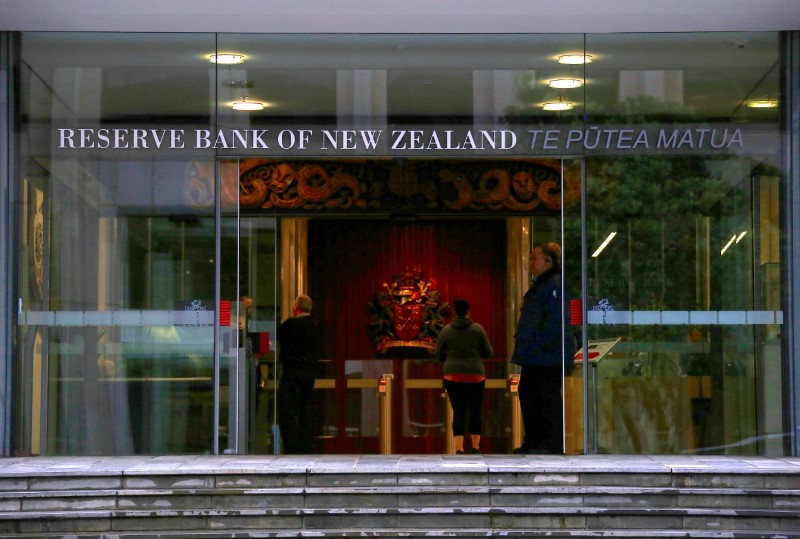Investing.com -- The Reserve Bank of New Zealand (RBNZ) kept interest rates steady on Wednesday, and said that interest rates will need to remain high or potentially rise further due to a sticky inflation outlook for the country.
The RBNZ kept its official cash rate at 5.50% as expected, keeping rates steady for a second consecutive month after it announced a pause in its rate hike cycle earlier this year.
While the central bank acknowledged that certain facets of the New Zealand economy were now slowing due to higher rates, it expects consumer inflation to remain sticky in the coming months, as the country still struggles with the aftermath of two damaging cyclones this year. This could elicit potentially one more rate hike in the coming months.
New Zealand slipped into a recession in the June quarter, and is set to log negative growth for 2023. The RBNZ expects annual gross domestic product to read -0.1 for 2023.
Weakness in the Chinese economy, which is a major trading partner for New Zealand, is also expected to put more pressure on the economy, especially as export prices drop.
But with a tight labor market and steady consumer spending, the RBNZ said that interest rates will need to remain higher for slightly longer than initially expected, while inflation is likely to remain steady in the September quarter.
Annual headline consumer price index inflation is set to remain at 6% in the September quarter after reading at similar levels in the June quarter. Inflation is only expected to come within the RBNZ’s 1% to 3% target range by late-2024.
“In the near term, there is a risk that activity and inflation measures do not slow as much as expected. Over the medium term, a greater slowdown in global economic demand, particularly in China, could weigh more on commodity prices and overall New Zealand export revenue,” Governor Adrian Orr said in a statement.
The RBNZ was among the first banks to begin hiking interest rates in the aftermath of the COVID-19 pandemic, raising the official cash rate by a total of 525 basis points over the past two years.
But increased immigration, a robust labor market, and the damaging effects of two major cyclones this year saw inflation remain largely sticky despite the bank’s efforts.
The New Zealand dollar rose 0.1% after the RBNZ decision.
